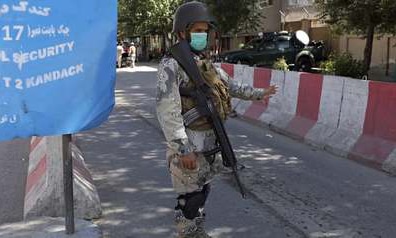KABUL: Australia on Tuesday abruptly announced it will shutter its embassy in Afghanistan this week, expressing fears over the “increasingly uncertain security environment” in Kabul as foreign troops withdraw.
The Taliban, who have ramped up violence across the country in recent weeks, reacted by saying they would provide a “safe environment” to diplomats and humanitarian organisations.
The United States and allied forces are in the final stages of pulling out their remaining troops from Afghanistan, ending America’s longest-ever war, but heralding an uncertain future for a nation in the tightening grip of Taliban militants.
Australian Prime Minister Scott Morrison said the embassy would close in just three days.
Around 80 Australian troops are leaving as part of the wider military pull-out, and without that small contingent — and the larger US force as back-up — Morrison said there was an “increasingly uncertain security environment”. “The government has been advised that security arrangements could not be provided to support our ongoing diplomatic presence,” he said in a statement.
It was not clear whether there was a specific threat against the Australian embassy, which is in the heavily fortified Green Zone, not far from the US mission. Afghanistan’s foreign ministry said it hoped Australia would review its decision, while an Afghan employee at the embassy expressed fear for his future.
“I put my life in danger protecting the embassy… and now they are leaving us. The Taliban have our names. We are scared,” the employee said.
The elected government in Kabul and Afghan security services remain fragile despite two decades of foreign capacity building, and their success is far from assured without continued US military support.
The Taliban said that foreign diplomats can “continue their operations as usual”. “(We) will not pose any threats to them,” spokesman Mohammad Naeem said.
When the Islamist hardliners seized control of Kabul in 1996, they entered the United Nations compound and abducted the country’s former leader Najibullah Ahmadzai, who they murdered.
Two years later, the Taliban oversaw the killing of 10 Iranian diplomats at their consulate in the northern Afghan city of Mazar-i-Sharif.
Western diplomats and military officials have been scrambling to work out how to provide security for their future civilian presence in Afghanistan with fears growing of a Taliban comeback.
“The only incentive for foreign embassies to remain is the humanitarian work that they are involved in, but if their personnel are endangered then there is no point in remaining here,” a foreign defence official based in Kabul said.
Violence continued to rage in much of the country on Tuesday, including just 120 kilometres from Kabul in Laghman province where Afghan forces carried out air strikes.
Taliban fighters have been encircling major Afghan urban centres, spurring speculation they are waiting for the American withdrawal before launching all-out attacks.
Nishank Motwani, an Afghanistan specialist based in Australia, said the Taliban would interpret the Australian announcement as a victory.
